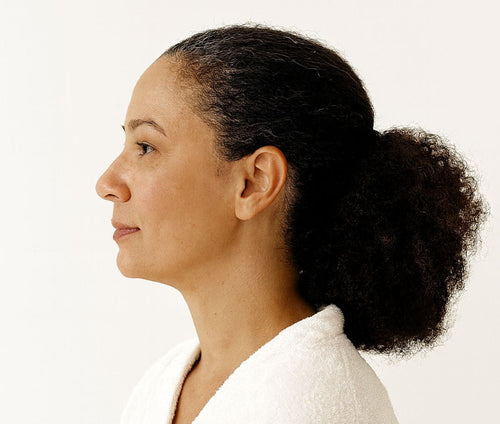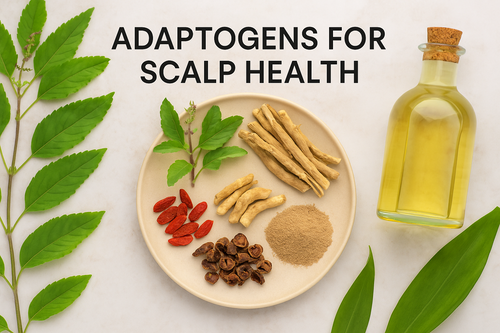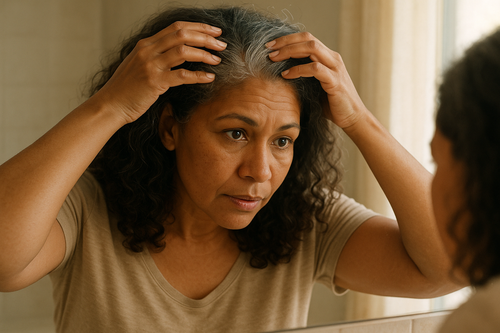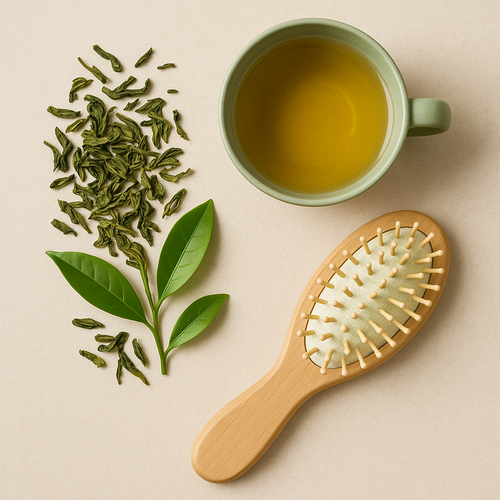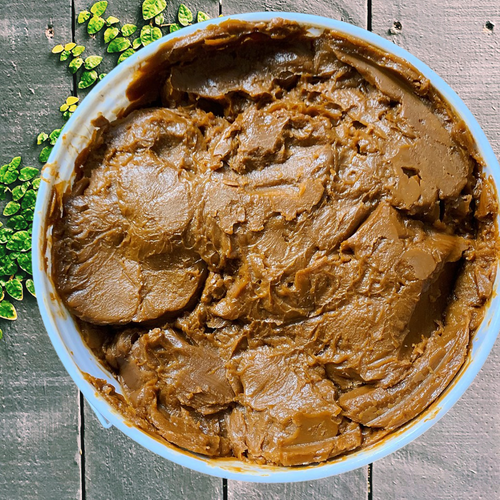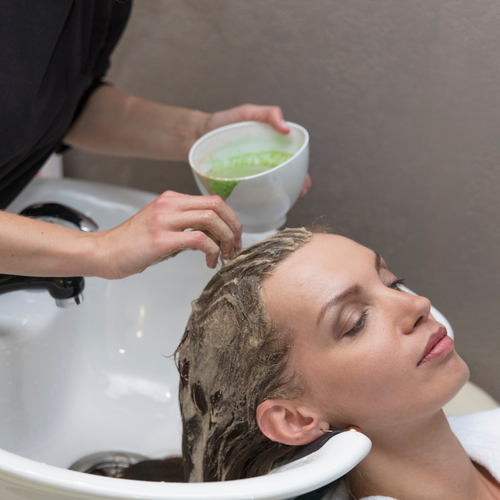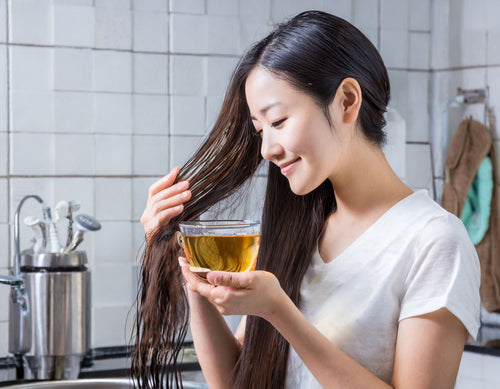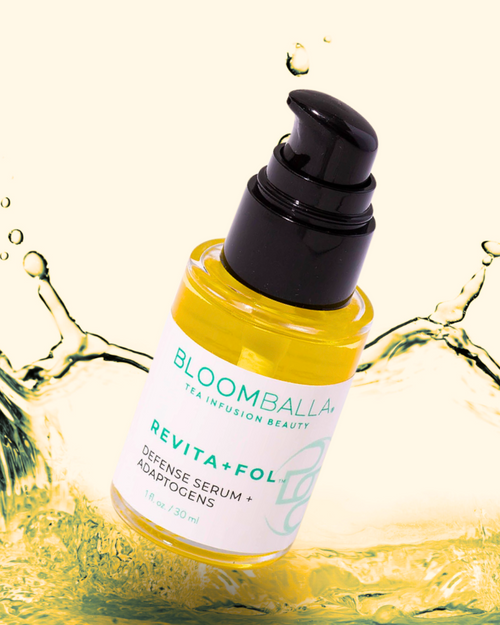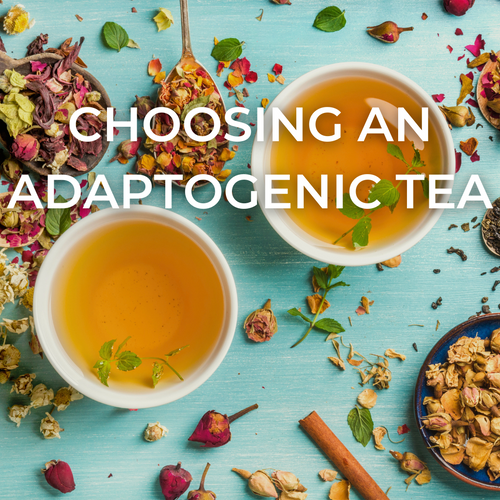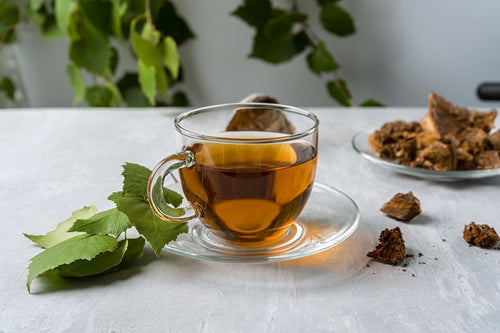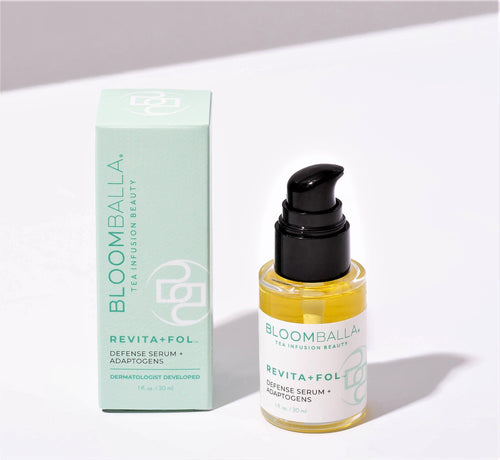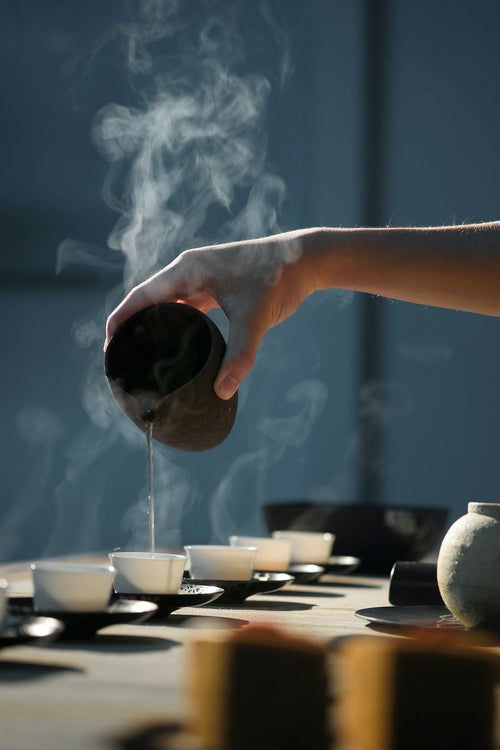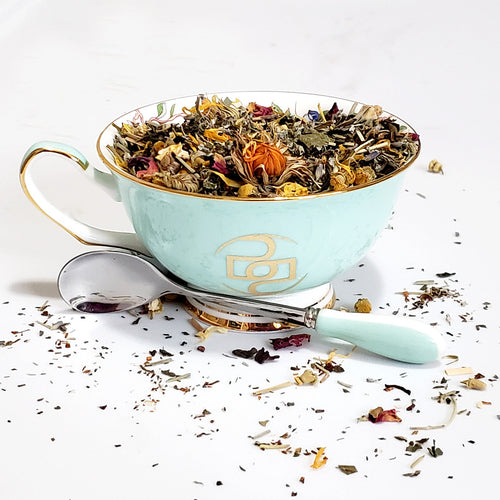In the quest for healthy hair growth and hair loss prevention, nature is an important part of the puzzle. Among the many natural remedies, green tea stands out as a potent support for hair growth and overall scalp health.
Green tea, derived from the leaves of Camellia sinensis, has been cherished for centuries in Asian cultures. It’s one of the oldest and most popular beverages in the world. Rich in antioxidant catechins, green tea is a powerhouse for both internal and external well-being. It has been used to prevent cancer, support weight loss, promote healthy brain function, and even to reduce the risk of cardiovascular disease.
When it comes to hair, green tea also offers hair growth benefits and can be useful for those struggling with hair loss, thinning, and shedding hair. Green tea offers a holistic approach that addresses various aspects of hair health.
Causes of Hair Loss
Hair loss, or alopecia, is quite common. It can be caused by many factors, including nutritional deficiencies, genetics, hormonal imbalances, and even environmental stressors. One of the most common forms of hair loss is androgenetic alopecia, also known as male or female pattern hair loss. This type of hair loss can cause thinning at the temples, crown, and front of the head, and is primarily caused by genetic factors.
Hormonal imbalances play a significant role in hair loss, with dihydrotestosterone (DHT) being a key player in androgenetic alopecia. DHT is a hormone derived from testosterone through the action of an enzyme called 5-alpha reductase. In people that are genetically prone to hair loss, DHT binds to hair follicles, causing thinning and baldness.
In addition to genetic and hormonal factors, environmental stress is a large, and often less discussed, trigger for hair loss. Stress hair loss can be caused by various biological or psychological stressors, such as illness, surgery, childbirth, weight loss, emotional trauma, or extreme stress. These stressors disrupt the normal functioning of the hair follicles.
Telogen effluvium is a type of hair loss triggered by significant stress, such as illness, surgery, or emotional trauma. During telogen effluvium, an increased number of hair follicles enter the resting phase prematurely, leading to excessive shedding and noticeable hair thinning. While it's normal to shed around 50 to 100 hairs per day, people experiencing stress related telogen effluvium may notice an increase in hair shedding, sometimes up to three times the normal amount.
Certain medical conditions and medications can also lead to hair loss. Thyroid disorders, autoimmune diseases like alopecia areata, and nutritional deficiencies are common medical conditions that can cause hair loss. Medications, such as some chemotherapy drugs, hormonal contraceptives, and antidepressants, may have hair loss as a side effect.
The Benefits of Green Tea
Green tea is renowned for its numerous health benefits. Rich in bioactive compounds, including polyphenols, catechins, and flavonoids, green tea possesses potent antioxidant and anti-inflammatory properties. Among its bioactive components, epigallocatechin gallate (EGCG) stands out for its incredible health-promoting benefits. EGCG has been extensively studied for its potential benefits, ranging from cardiovascular protection to cancer prevention.
Green tea is said to have fat-burning benefits. It has been reported to positively influence metabolism and fat-burning, especially when paired with exercise. Green tea may also assist with increased weight loss and help reduce abdominal fat. Other potential benefits of green tea include assisting with reduction in blood sugar and helping reduce the risk of some cancers, including lung and ovarian.
The Benefits of Green Tea for Hair Health
In terms of hair health, two hormones, testosterone and dihydrotestosterone can decrease hair growth and increase hair loss. EGCG, a powerful antioxidant found in green tea, is thought to reduce the effects of these enzymes on hair follicles. By reducing DHT levels in the scalp, EGCG may help preserve the function and vitality of hair follicles and reduce hair loss.
The antioxidant properties of green tea also help protect hair follicles from oxidative stress-induced damage. Oxidative stress occurs when there is an imbalance between the production of reactive oxygen species (ROS) and the body's antioxidant defenses, leading to cellular damage. By scavenging free radicals, green tea helps create a favorable environment for hair growth.
Green tea also has antimicrobial activity, which may be beneficial for individuals suffering from scalp conditions such as dandruff or seborrheic dermatitis. By inhibiting the growth of microorganisms, green tea can help maintain scalp health and prevent secondary complications that can trigger or worsen hair loss.
Green tea derived EGCG has been reported to increase hair growth. In one study, applying green tea derived EGCG extract to the scalps of three participants with hair loss resulted in hair growth. Green tea also has been found to increase blood circulation and improve hydration of the skin. Poor blood circulation can lead to hair loss. Improved circulation is vital to delivering important nutrients to hair follicles to support hair growth. Green tea is also used to moisturize the scalp and smooth the hair, and may be beneficial to those with dandruff.
Other Herbs that Combat Hair Loss
Rosemary
Rosemary has antioxidant and anti-inflammatory properties. Studies show that rosemary oil may stimulate hair growth, in part, by promoting blood circulation to the scalp. One study showed that rosemary oil was as effective as topical minoxidil for stimulating hair growth.
Peppermint
Peppermint is a well-known herb prized for its aroma and cooling sensation. It has anti-inflammatory and antimicrobial benefits. It can also improve blood circulation. Peppermint oil has been reported to stimulate hair growth by increasing the number of hair follicles. It is also reported to increase the anagen (growth) phase of the hair cycle.
Ginseng
Ginseng is a popular herb in traditional Chinese medicine known for its adaptogenic properties. It contains compounds called ginsenosides, which have been reported to stimulate hair growth and reduce hair loss.
Hibiscus
Hibiscus tea, anyone? While ayurvedic hibiscus doesn’t have the wide body of study that some herbs have, it has been reported to increase hair growth by influencing the anagen (growth) phase of the hair cycle.
Effective Ways to Support Hair Growth
Incorporating green tea and other herbal remedies into your hair care regimen can complement conventional medical treatments and promote optimal hair health. It’s important to also maintain a balanced diet that is rich in essential nutrients, like vitamins A, C, E, biotin, and vitamin D. Remember, what you eat matters. Nutrient deficiencies can lead to hair loss. Practicing good hair care habits, such as using gentle natural products, avoiding excessive heat styling, and minimizing tension on the hair is also important. Regular use of an adaptogenic antioxidant scalp serum like Revita+Fol serum can also help preserve your hair.
FAQ: Green Tea for Hair Health
Does green tea actually help with hair loss?
Green tea, rich in antioxidants like EGCG, helps inhibit the activity of DHT, a hormone implicated in hair loss, promoting healthier hair follicles. Its anti-inflammatory properties protect against oxidative stress, creating an optimal environment for hair growth. Additionally, green tea's antimicrobial activity aids in maintaining scalp health, further supporting hair vitality.
Are there any side effects of using green tea for hair?
Generally, green tea is considered safe for topical and oral use. However, individuals with caffeine sensitivity may experience mild side effects such as jitteriness or insomnia. Some people could be allergic to green tea or its components, so it's advisable to perform a patch test before applying green tea topically.
How long does it take to see results from using green tea for hair growth?
The timeline for seeing results from using green tea for hair growth can vary depending on individual factors such as the severity of hair loss, consistency of use, and your overall health status. While some people may notice improvements in hair texture and thickness within a few weeks of regular use, it may take several months of consistent use to see significant changes. Patience and consistency are key.
Summary: Green Tea for Hair Loss
In conclusion, green tea offers an integrated approach to combating hair loss and promoting hair growth. By reducing DHT activity, scavenging free radicals, and maintaining scalp health, green tea and its bioactive constituents provide a natural and effective solution for individuals seeking to address hair loss concerns. When combined with other conventional treatments, herbal remedies and healthy lifestyle practices, green tea can help restore hair vitality and confidence.
REFERENCES:
Musial C, Kuban-Jankowska A, Gorska-Ponikowska M. Beneficial Properties of Green Tea Catechins https://www.ncbi.nlm.nih.gov/pmc/articles/PMC7084675/
https://www.aad.org/public/diseases/hair-loss/insider/shedding
https://www.aad.org/public/diseases/hair-loss/types
Chacko SM, Thambi PT, et al. Beneficial effects of green tea: a literature review. https://www.ncbi.nlm.nih.gov/pmc/articles/PMC2855614/
Dhariwala MY, Ravikumar P. An overview of herbal alternatives in androgenetic alopecia. https://pubmed.ncbi.nlm.nih.gov/30980598/
Rostamian Mashhadi, M., Hosseini, S.R.A. The interaction effect of green tea consumption and exercise training on fat oxidation, body composition and blood lipids in humans: a review of the literature. https://link.springer.com/article/10.1007/s11332-022-00955-8
Panahi Y, Taghizadeh M, et al. Rosemary oil vs minoxidil 2% for the treatment of androgenetic alopecia: a randomized comparative trial. https://pubmed.ncbi.nlm.nih.gov/25842469/
Oh JY, Park MA, et al. Peppermint Oil Promotes Hair Growth without Toxic Signs. https://www.ncbi.nlm.nih.gov/pmc/articles/PMC4289931/
Medically Reviewed by: Raechele Cochran Gathers, MD


